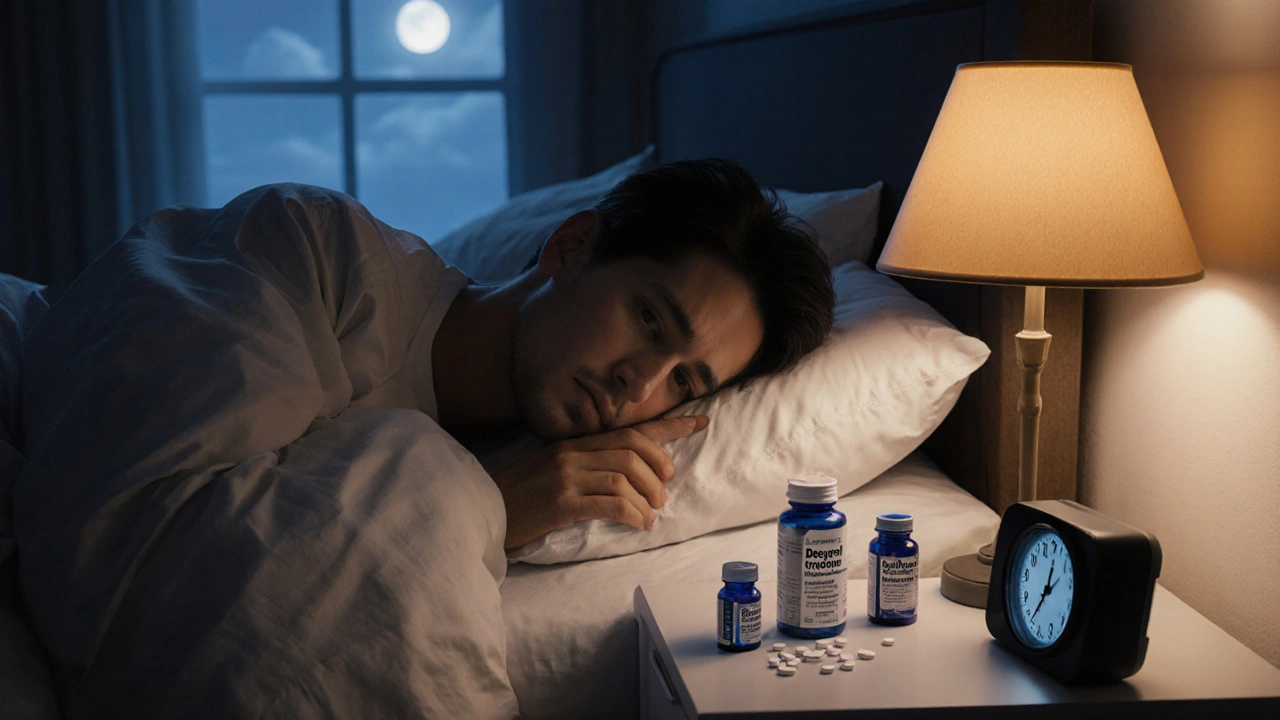Trazodone Alternatives: A Practical Guide to Better Sleep and Mood
When looking at Trazodone alternatives, medications, supplements, and therapies that can replace trazodone for insomnia or depression. Also known as Trazodone substitutes, it helps people who need a different side‑effect profile or a better fit for their health conditions. Antidepressants, drugs that balance brain chemicals to lift mood are a common category, while Sleep aids, agents that promote restorative rest without heavy sedation address nighttime troubles. Understanding how these groups intersect lets you pick a safe, effective switch.
Why Explore Alternatives?
Many users stop trazodone because of daytime drowsiness, weight gain, or interactions with other meds. Switching to another Trazodone alternatives means you can keep the mood‑lifting or sleep‑supporting benefits while reducing unwanted effects. For example, Mirtazapine, an antidepressant with strong sedating properties, often helps those who need a night‑time solution without the same next‑day fog. On the other hand, Bupropion, an atypical antidepressant, offers mood improvement without sedation, making it a solid daytime choice. Knowing which drug aligns with your daily schedule creates a smoother transition.
Natural options also play a role. Melatonin, valerian root, and magnesium are widely studied for sleep regulation and have minimal drug‑drug interactions. When paired with lifestyle tweaks—like consistent bedtime routines and reduced screen exposure—these supplements can match or even outperform prescription sleep aids for mild insomnia. Their easy over‑the‑counter access and lower cost add practical appeal, especially for people monitoring expenses.
Beyond individual compounds, therapeutic approaches such as cognitive‑behavioral therapy for insomnia (CBT‑I) and mindfulness‑based stress reduction (MBSR) directly address the root causes of sleep disruption. While they require time and professional guidance, the long‑term benefits often exceed what any single pill can deliver. Combining a low‑risk supplement with CBT‑I, for instance, provides a double‑layered strategy: the supplement eases falling asleep, and the therapy reshapes habits that keep you awake.
When evaluating alternatives, safety checks matter. Look at each option’s metabolism pathway—CYP450 enzymes, for instance—to avoid surprises with other prescriptions. Check the dosage range; many alternatives work best at low start doses and need gradual titration. Side‑effect profiles differ: mirtazapine may increase appetite, while bupropion can raise blood pressure in susceptible individuals. By matching the drug’s characteristic side effects to your health picture, you reduce the risk of new problems.
Insurance coverage and cost are practical concerns too. Generic versions of many antidepressants, like sertraline or escitalopram, are usually cheaper than brand‑name trazodone and often appear on pharmacy benefit lists. Online price‑comparison tools can reveal further savings, but always verify the pharmacy’s legitimacy before ordering. If budget constraints limit prescription options, natural supplements and behavioral therapies become even more valuable.
Below you’ll find a curated list of articles that dive deeper into each alternative, compare effectiveness, outline dosing tips, and share real‑world experiences. Use this resource to decide which path fits your sleep and mood goals, and feel confident about making an informed switch.
A side‑by‑side look at Desyrel (trazodone) versus common alternatives, featuring a comparison table, pros and cons, decision guide, and FAQs for patients choosing a sleep or mood medication.
View More

